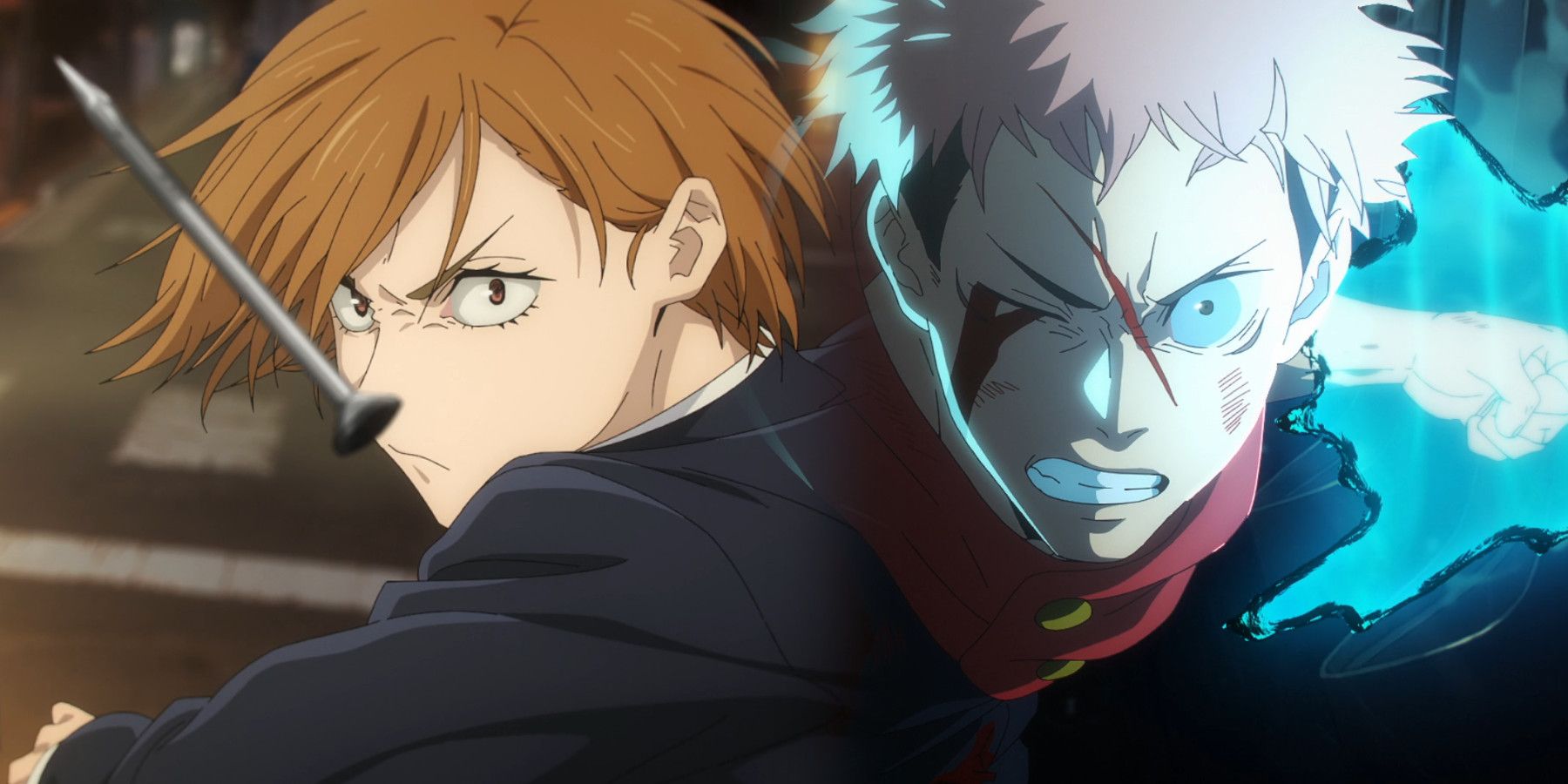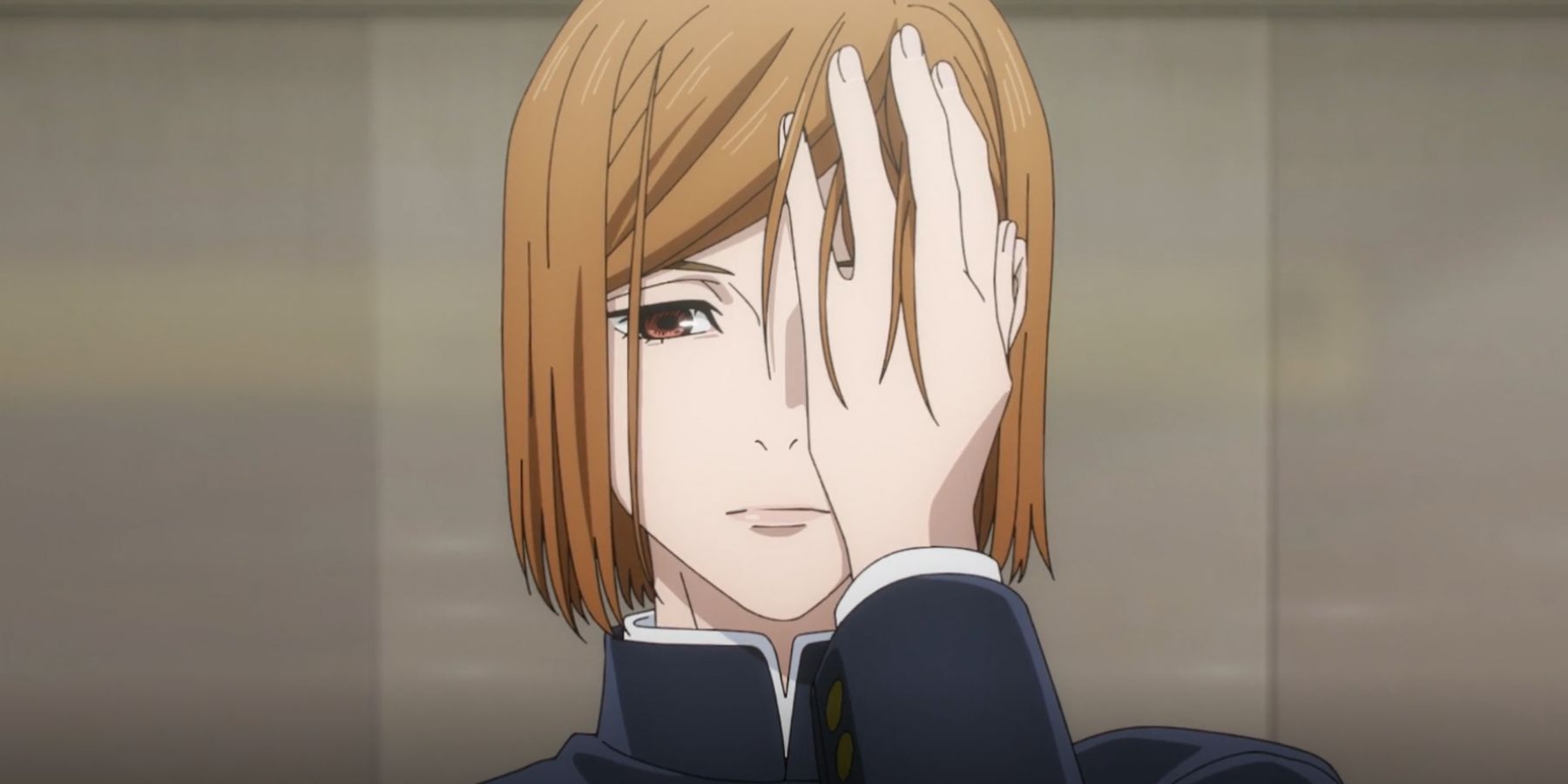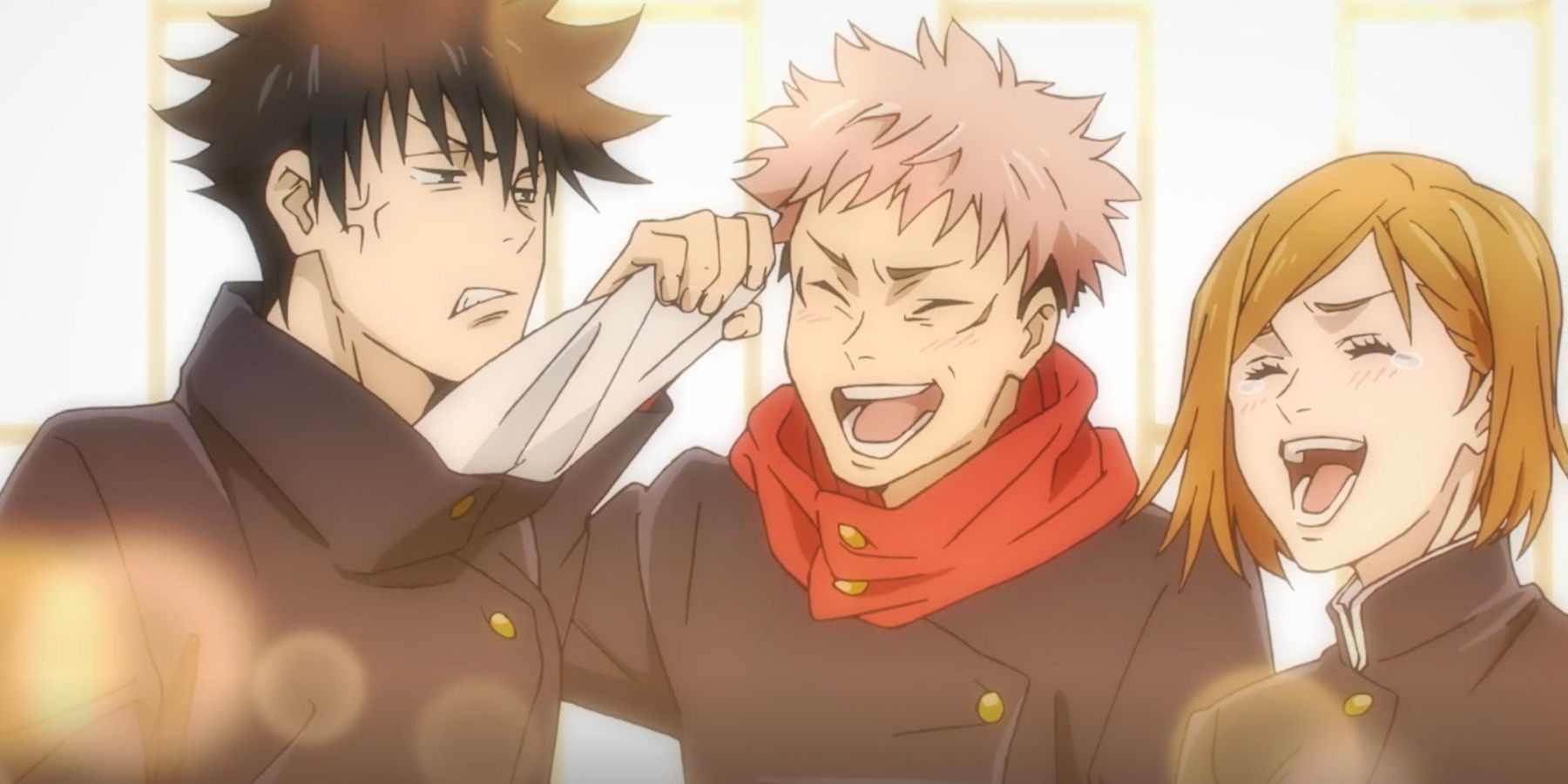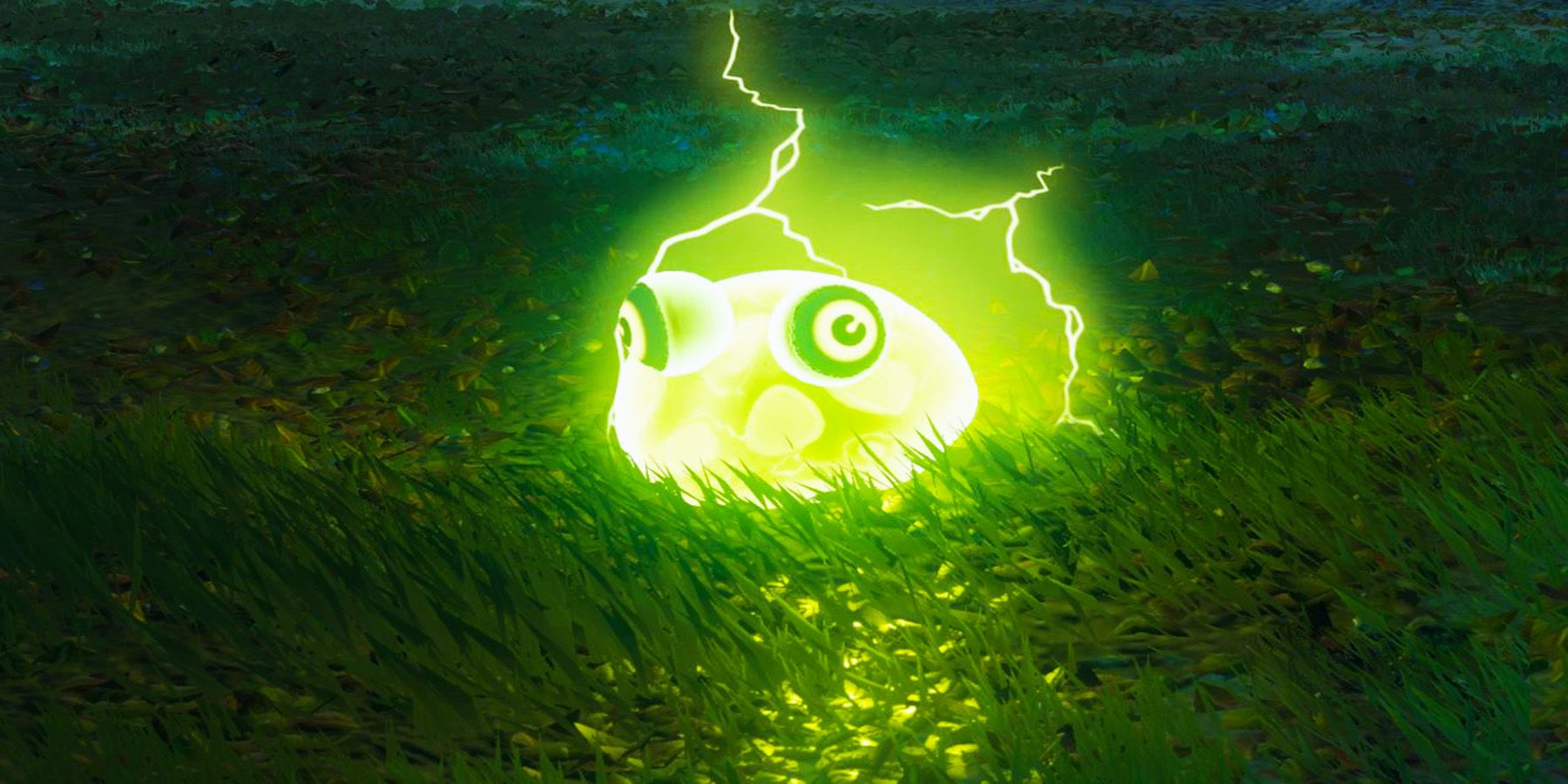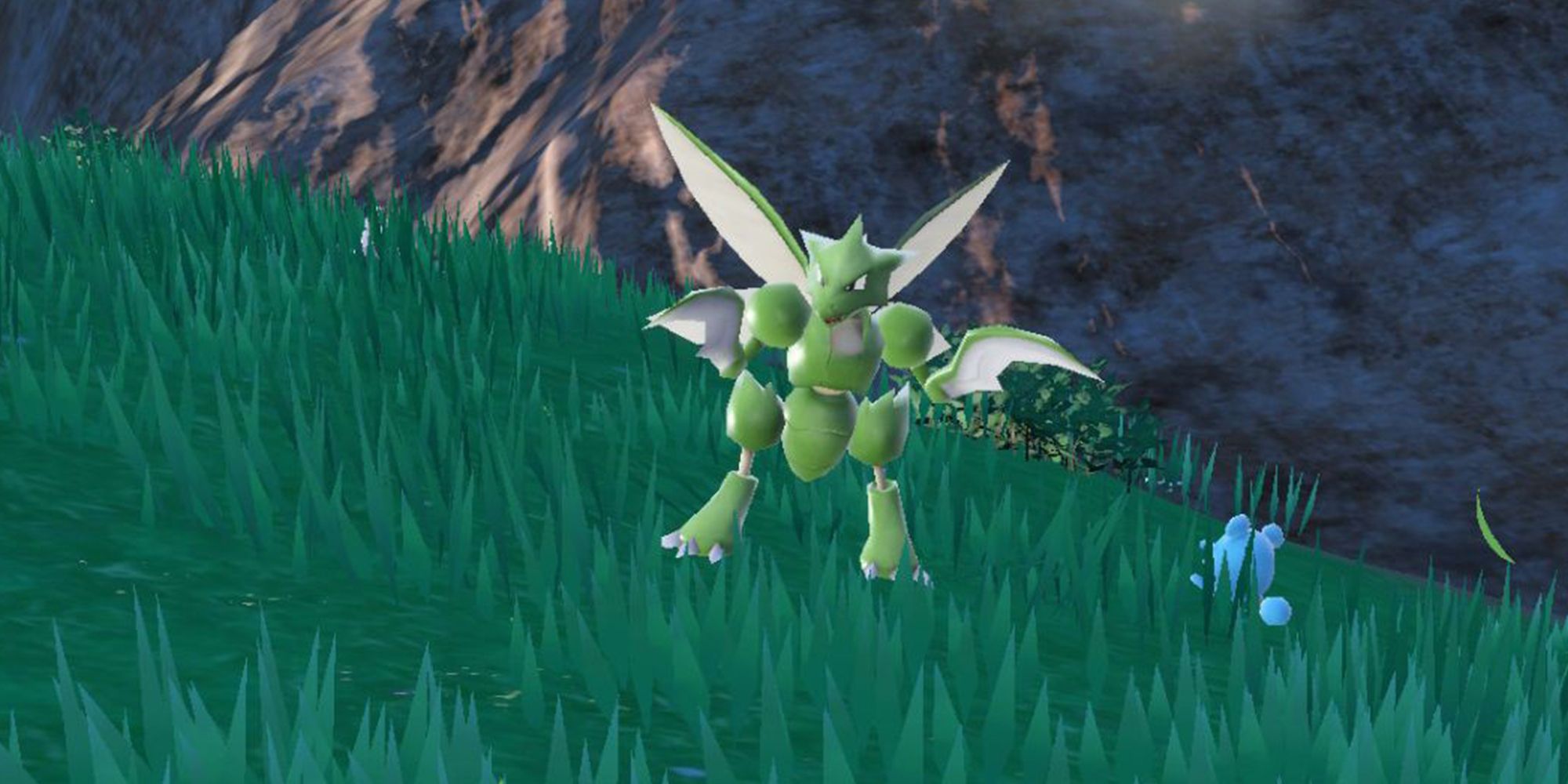Highlights
- Episode 43 of Jujutsu Kaisen is a devastating sendoff for Nobara, but her friendship with Yuji is a powerful and significant part of her final episode.
- The build-up to Nobara’s death may be subjective, but her relationships with the characters, especially Yuji, played a pivotal role in her departure.
- Despite the mixed reactions, Nobara’s death highlights the theme of friendship and the impact it has on the characters in Jujutsu Kaisen.
Warning: This contains MAJOR spoilers for Jujutsu Kaisen, most notably Episode 43, “Right and Wrong, Part 2,” now streaming on Crunchyroll and Prime Video.
Episode 43 of Jujutsu Kaisen was rough; a devastating sendoff yet an equally powerful celebration of a life and friendship that is even more powerful in retrospect. The mixed reactions to this death warrant an examination of the relationship between Yuji Itadori and Nobara Kugisaki, what it meant, and why it hurts so much to see the latter go.
Nobara was first introduced in Episode 3, “Girl of Steel,” an aptly-titled chapter in which the confident and outspoken sorcerer solidifies herself as the third member of the main trio. Although she was at odds with the other two, she warmed up to them quickly, becoming especially chummy with Yuji, despite their frequent bickering.
Jujutsu Kaisen: Dagon’s Disaster Tides, Explained
Boasting immense hydrokinetic powers and command over a huge variety of shikigami, Dagon’s Innate Cursed Technique is extremely versatile.
And Then She Died the Next Season
Perhaps that’s not the most delicate way to put it, though it would likely be how one dissatisfied with this episode might articulate their anger at the death of a beloved character with unresolved ambitions. James Beckett of Anime News Network was and remains positively livid about this fatality, calling it unceremonious; the fridging of one of the series’ most layered and inspiring female characters.
The death itself isn’t the issue so much as the subjective topic of whether the build-up to the death was well-written, something Beckett would argue to be a firm “no.” After all, it’s not as if Jujutsu Kaisen has been going on for over 100 episodes. This is only episode 43 – the second season – and so far the Shibuya Incident arc has been a turning point the likes of which most shōnen wouldn’t attempt until maybe the third or fourth season.
Imagine one of the most popular shōnen series out there, then imagine the main trio – the ones constantly on the posters. If one of them legitimately died in the second season, how dramatically would that shake things up? Most importantly, how does a death like that become “earned”? Whether this episode is received with sadness yet captivation or anger and dissatisfaction all depends on how one perceives the sum of Nobara’s time in the series.
This isn’t relegated solely to her inner life or her backstory, but her relationships with the characters, especially Yuji, whose bond is a pivotal part of her final episode. It’s hard to imagine coming away from Episode 43 feeling happy, but if anything about this episode worked properly in the service of sending Nobara off, then it was because of her relationship with Yuji.
The Meaning of “Give it Back”
From a purely quantitative standpoint, an argument could be made that not enough time was spent with these characters to forge something substantial enough. Yuji spent half of Season 1 separated from Megumi and Nobara, faking his death. Then, after Season 1, there was a feature film featuring none of them. Next, Season 2 started with yet another flashback arc, and finally, the Shibuya Incident arc kept the gang fairly isolated, save for Yuji and Megumi’s brief team-up.
But this only hurts the series if one is selectively considering the biggest plot points, especially if they haven’t rewatched the first season recently. 2020 was a while ago, after all. To be blunt, Season 1 did such an incredible job of building the character relationships, stressing their importance at a time when the threat had not yet escalated too dramatically.
For instance, the “Juju Stroll” segments, while occasionally creating dissonance with the tone of the show proper, were invaluable to creating a strong bond between the characters. It plants the idea in the mind of the viewer that there has been a multitude of misadventures in the undisclosed time between episodes and arcs. These segments are also just plain funny and bring out the best of Gege Akutami’s humor.
Beyond these gags, however, the entire second half of Season 1 is practically begging the audience to cherish every moment with the cast. The second ending theme, “Give it Back” by Cö Shu Nie, is an anthem to the fleeting joy of youth, keeping with the series’ persistent themes about adulthood. Looking back on Season 1, it’s as if this ED is Yuji reflecting on the past in the aftermath of the Shibuya Incident, desperate to reclaim what he once had.
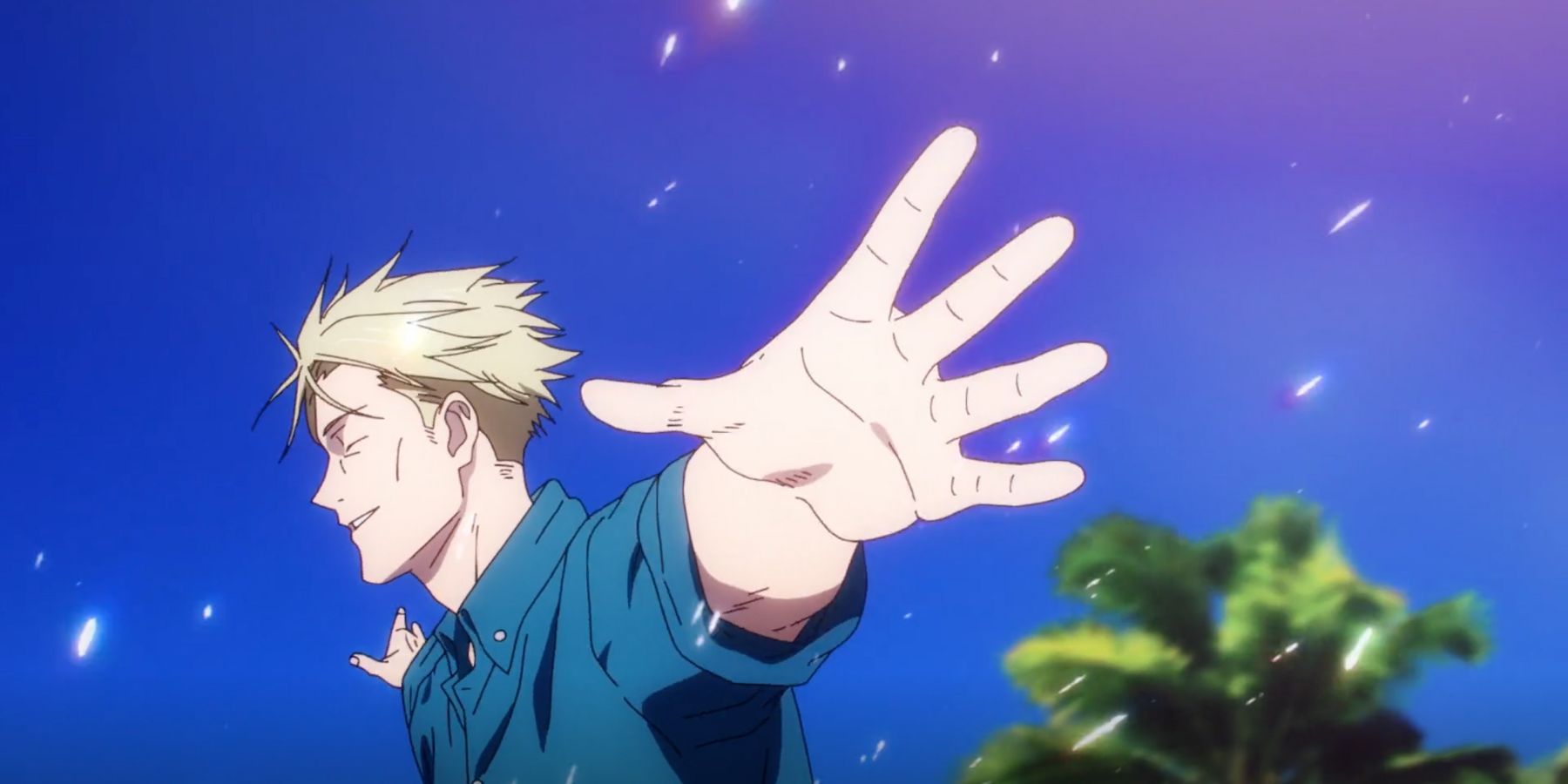
Jujutsu Kaisen: The Life of Kento Nanami
Kento Nanami’s life was far from easy, but it helped shape him into one of Jujutsu Kaisen’s most interesting characters.
How Yuji and Nobara’s Dynamic Developed
Back when they first met, it felt like Yuji and Nobara would be at odds for a whole season before warming up to one another, but it speaks to the layered characterizations that they do get along. They are incredibly alike in their humor, and the kinds of activities that excite them, despite their differing relationship with jujutsu sorcery. It helps that the vocal direction can be so naturalistic, which helps ground these young adults in reality and makes the dialog more relatable.
Yuji’s joy is derived from his easygoing nature, unfettered by his macabre circumstances as a man effectively on death row. Nobara might take sorcery a bit more seriously and take pride in her skills, but she is also quite peculiar for one in her position. To her, sorcery is an outlet through which she can live her best life, living in the city and enjoying its amenities. So it’s only natural that she’d connect with someone like Yuji who is similarly high on life.
There’s a good reason that the final arc of Season 1 was tightly focused on the main trio. It was to reinforce their bonds before they would be tested like never before. And it’s especially telling that Yuji and Nobara were paired up for a significant portion of that climax, facing off against Kechizu and Eso, where Nobara in particular stole the show. Following this battle, the conversation between the two might be one of the best in the series.
Yuji is uncomfortable having killed someone rather than just exorcising curses like usual, something that doesn’t quite phase Nobara. Her analogy about having only so many open chairs in her life says a lot about her resolve, but crucially, she doesn’t let Yuji wallow in that sadness alone. She says that he brought his own chair but suggests that she’s happy he’s in her life regardless, not letting him bear the burden alone. As the episode name says, they’re accomplices.
A Lot of Build-up For A Worthwhile Payoff
With this conversation fresh in one’s mind, it’s no wonder that Episode 43 – in the nine minutes before Nobara’s death flag reaches full mast – feels glorious. From what feels like a world away, Nobara deals a devastating blow that saves Yuji’s life, which he recognizes immediately. Even after everything he’s been through, and all the death he’s witnessed, he’s not alone.
There’s so much more to be said about Nobara, from how she confronts gender roles in the Sister School Exchange Event to the vivid portrait of her life painted in the very episode of her death. She is a character who lived a beautiful life doing what she wanted, spitting in the face of every standard that wanted to tell her who to be, and she went out leaving a nasty mark. When she tells Yuji that she lived a good life, she’s right, no matter how much it sucks that she’s gone.
When Kento Nanami died, the torch passed to Yuji was immense, as he had become synonymous with the story’s themes about adulthood. Nobara’s death can feel like an insult to injury, but it also magnifies a similarly poignant theme about friendship. For all the talk about having only a few empty chairs in her life, the people that Nobara needed the most were the ones who brought their own. People aren’t wired to pick and choose who stumbles into their lives.
The Shibuya Incident arc hasn’t been perfect, and not everyone will share the same bittersweet satisfaction at the end of Nobara Kugisaki’s story, but on one point, hopefully, most can agree. Hers and Itadori’s friendship is one of the most delightful in all of Jujutsu Kaisen, and it was worth every second, even if it ended too soon.
Source: Anime News Network
